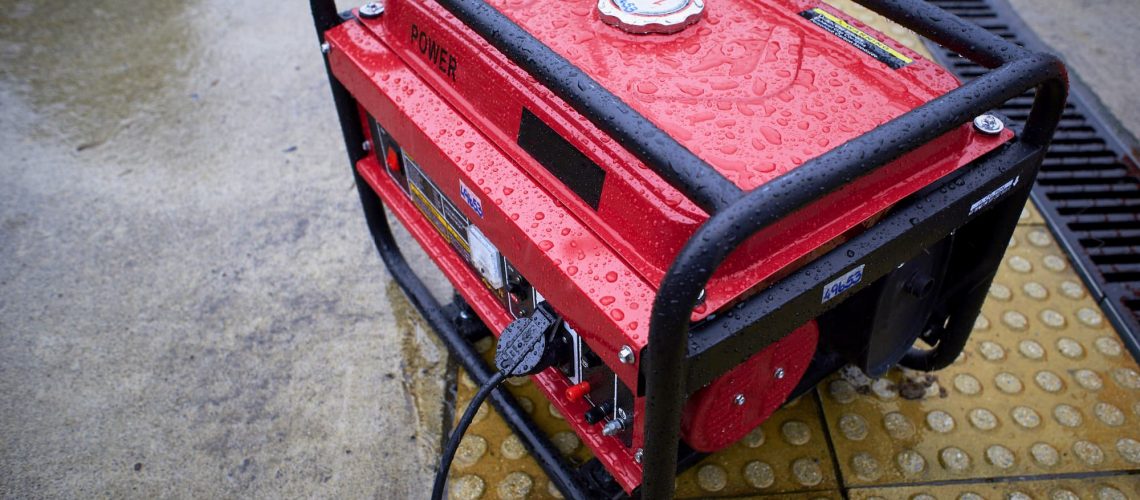Personal generators see a lot of use during bad weather. Even so, there’s often a risk of using these devices during these conditions, especially in the rain. Understanding the risks and how to safely use a generator allows you to power your home safely. If you’ve ever considered using a generator in the rain, take a moment to learn about generators and find the answers to common questions and concerns you might have.
Can a Generator Get Wet?
Modern generators are designed with safety as a priority. They often incorporate a variety of features that allow them to withstand different weather conditions. These features can include specialized casings and design elements that minimize exposure to moisture. Some models even have waterproof outlets to further prevent any water-induced accidents.
However, while these features enhance the generator’s resilience to water, they do not make the generator completely waterproof. Even the best generators can succumb to water if moisture is allowed to seep into their internal components. To prevent accidents, you should always ensure your generator is not directly exposed to water for extended periods of time.
When a generator gets wet, it can easily lead to an electrical malfunction. This malfunction could range from damaging the internal components of the generator, making them less efficient or entirely non-functional, to causing the generator to short-circuit. The latter is particularly dangerous as it can cause fires or even electrocution. Water damage can also void the warranty depending on the manufacturer’s policies, making for costly repairs or replacements.
Can You Run a Generator in The Rain?
There are several precautions you need to take if you’re running a generator in the rain. Make sure the generator is appropriately placed and sheltered in a dry, well-ventilated area, away from any water sources or puddles. Avoid running the generator inside in an enclosed space, and do not operate it near open windows and doors while outside to prevent carbon monoxide poisoning.
Consider purchasing a generator rain cover or enclosure to shelter your generator. These are designed specifically to protect the generator from rain, snow, and other elements during operations. Generator rain covers typically have ventilation openings to allow for airflow and prevent overheating while still keeping the rain out, avoiding a major pitfall of operating a generator outside.
Regular maintenance, such as checking oil levels and changing filters, will also ensure the safe operation of your generator in wet conditions. Before turning it on, check for any signs of moisture or corrosion inside the generator. Also, remember to dry your hands thoroughly before touching the generator to prevent electrocution.
Ensuring Generator Safety and Longevity
As we mentioned before, regular maintenance and inspection are the best way to maintain the safety and prolong the life of your generator. This includes regular oil changes, battery checks, and cleaning of the air filter and fuel system.
If you don’t feel comfortable performing these tasks yourself, consider turning to professional services like those provided by Generator Supercenter of Sarasota. The expert technicians will ensure that your generator is in top-notch condition and ready to handle any weather condition.
FAQS Running Generators in the Rain
Can a generator get wet?
Generators are designed to resist moisture with features like specialized casings and waterproof outlets, but they are not fully waterproof. Direct exposure to water can damage internal components, cause malfunctions, and create safety hazards like fire or electrocution.
Is it safe to run a generator in the rain?
It can be safe if proper precautions are taken. Place the generator in a dry, ventilated area away from water, avoid enclosed spaces, and use a generator rain cover or enclosure to protect it from the elements while allowing airflow.
What precautions should I take when running a generator in wet conditions?
Ensure the generator is sheltered from water, maintain proper ventilation, check oil levels and filters, inspect for moisture or corrosion, and always dry your hands before operating the generator.
How does running a generator in the rain affect its lifespan?
Running a generator in wet conditions without protection can shorten its lifespan due to water damage and corrosion. Proper maintenance, shelter, and professional servicing help ensure longevity.
Can professional services help with generator safety in the rain?
Yes. Professional maintenance services, like those offered by Generator Supercenter of Sarasota, can inspect, maintain, and prepare your generator to safely operate in any weather condition, extending its reliability and lifespan.
Operate a Generator Safely in Any Condition
While modern generators are designed to withstand various weather conditions, running a generator in the rain without suitable precautions can be risky. With proper placement, the use of generator rain covers, and regular maintenance, though, you can safely power your home even during a downpour.
Professional maintenance services like those provided by Generator Supercenter of Sarasota can help make sure your generator is safe to use and lasts for years. Contact us at 941-999-2097 or visit our website for expert maintenance services.
Featured Image Credit: Warehouse of Images/Shutterstock



